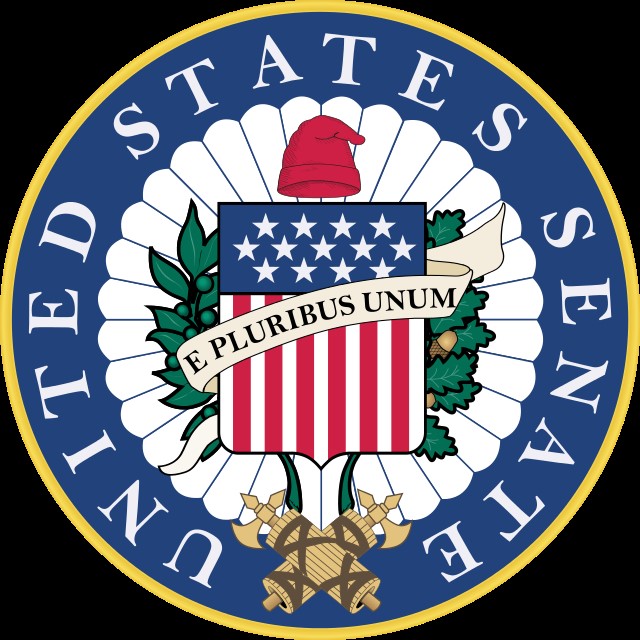The 17th Amendment to the United States Constitution changed how Americans select senators and, in doing so, fundamentally changed how Congress operates.
The people form the basis of power and hold the sovereignty in our democratic republic. The people in turn surrender some sovereignty to the states, through charters and constitutions. During the Revolutionary War and immediately following, the early states were a confederation, not an integrated federal system. They printed their own money, levied their own tariffs and taxes, and even conducted their own foreign policy.
When the Founding Fathers created the Constitution, the states operated generally as autonomous entities. While drafting the responsibilities of the House and Senate, these issues of competing sovereignty between the people, states, and federal government were very much on their minds. The House of Representatives represented the people directly, who the Founders considered fickle and ignorant of government operations. As such, they assigned the House of Representatives primary control over taxes, the issue most directly affecting most citizens of the country, but left technocratic duties to the Senate.
The Senate should represent the states, since they as entities surrendered powers to the new federal government. In contrast to the House, the Senate has sole supervision of more technocratic duties such as approving treaties and confirming federal officers. Since states cannot conduct foreign affairs independently under the Constitution, the states’ representatives would act as a group to oversee foreign affairs via approving treaties into which the president entered. In addition, by selecting their state’s senator, state legislators had the opportunity to select the people who would create the laws under which the state governments would live.
Unfortunately, the 17th Amendment (direct election of senators) created unintended consequences – namely, poor federal-state relationships. If state legislators select each state’s senators, the relationship between states and the federal government would improve in several ways: it would counteract political polarization, lessen the impact of special interests, and relax federal restrictions on states when disbursing money.
Under state selection of senators, the Senate would be a more moderate body. Today, elections often consist of two vastly different candidates who won primaries in order to run in the general election. Consequently, the Senate ends up polarized. Selection from a legislature would not require a primary and would temper the extremes. State legislators are more aware of issues and practical skills needed to function effectively in a deliberative body. Consequently, they are better suited to select qualified senators.
Additionally, returning to a system of state selection would subvert special interests. There would be no real campaigning, and senators would not be indebted to wealthy donors. Senators could pursue policies in the interest of the state, not special interest donor groups.
Another impact concerns the relationship of grant money and the requirements that come with it. Currently, the federal government disburses most grants to states via categorical grants. This grant money must be spent according to tightly constricted rubrics that states have little ability to adjust. States simply act as clearinghouses for the funds. If states have representation in Congress, the federal government would be compelled to consider state budgeting priorities. This would ideally produce a more sound, congruent, and predictable budgeting system. No longer would states enact costly programs simply to meet federal requirements, nor would policymakers be as apt to constrict exactly how to spend money in the states. In addition, since fewer special interests would be involved, the federal government would not spend as frivolously.
The 17th Amendment might have been an ideal change at the time, but like many other reforms, it has run its course. Our founders were acutely aware of what they were doing when they drafted the Constitution. Most Americans are rather ignorant about how their government operates, which we should change as well (perhaps requiring four years of civics rather than one semester in Texas). Not only should we teach how the system works in schools, but also, why it was established in the way it was. Only then can one fully appreciate how government works. We need to revert to state legislature selection of senators in an effort to quell political polarization, fight the domination of special interests, and ease budgetary burdens.


One reply on “How the Senate should be [s]elected”
I respectfully disagree with the idea that repealing the 17th amendment would have a positive impact on gridlock, lead to greater federal-state cooperation, or reduce “special interest” influence. The 17th amendment was passed because of the secretive nature of the selection of Senators that gave the people little or no recourse to make a change. Repealing the amendment gives power to state senators many of whom are highly ideological. On the issue of federal-state cooperation, if the logic of this proposal were to be accepted, then only city councilors or mayors from each legislative district should be eligible to run for state senate/state house and the election should be held amongst those same individuals.
Furthermore, the Senate is gridlocked not because the people have a say in who represents them but because the rules and apportionment of the body make it extremely difficult to pass legislation without a supermajority and voters themselves are divided about policies.
Finally there is no evidence that repealing the 17th amendment would reduce “special interest” influence. Regardless of how a senator is selected, those same interests are likely major employers in the senator’s state and will try and influence him or her through lobbying or would try and defeat him or her in their state senate race where arguably special interest money could make a bigger difference with less constituents to reach.
In short this article is a solution in search of a problem.